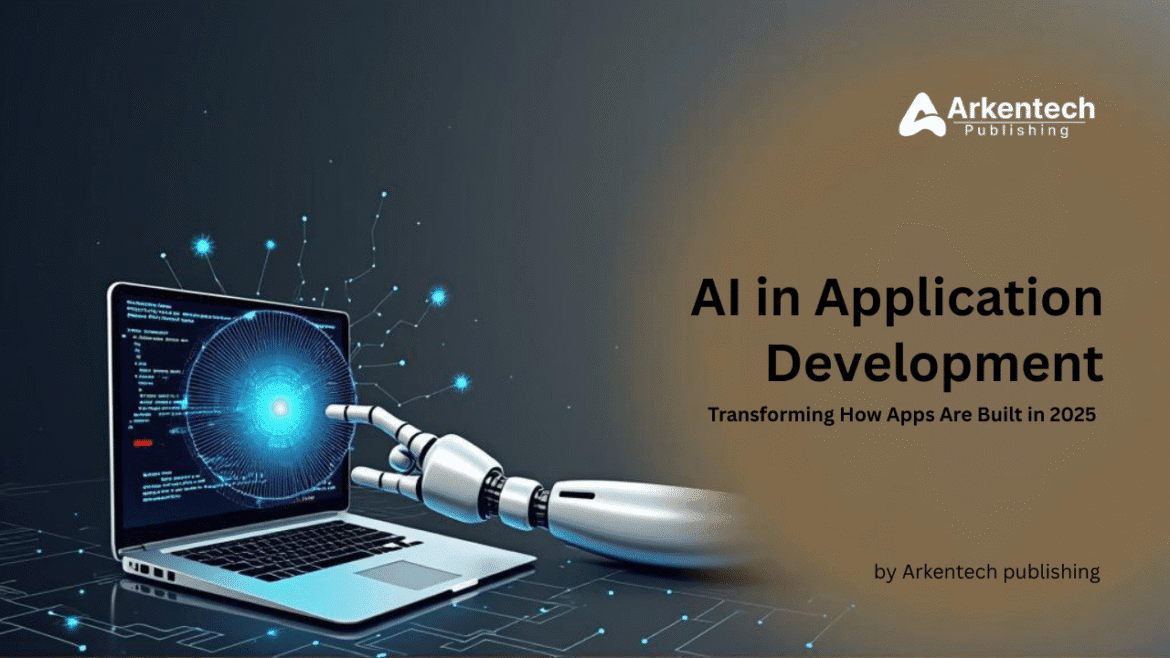Introduction
Artificial Intelligence (AI) has reshaped industries worldwide, and the software sector is no exception. AI in Application Development has become a driving force behind how businesses build, deploy, and scale applications in 2025. From automating repetitive coding tasks to enhancing user experience with personalized features, AI is no longer a futuristic concept—it is today’s competitive advantage. Companies that leverage AI are able to cut development costs, improve efficiency, and deliver highly adaptive applications to meet modern demands.
What is AI in Application Development?
AI in Application Development refers to the use of machine learning, natural language processing (NLP), and generative AI models to automate coding, testing, debugging, and optimization. It transforms traditional software engineering by:
- Automating repetitive tasks like writing boilerplate code.
- Improving app quality through AI-driven testing.
- Enhancing personalization with predictive analytics.
- Optimizing development cycles with faster deployments.
In essence, AI shifts development from manual, time-consuming processes to intelligent, adaptive workflows.
Key Ways AI is Transforming Application Development in 2025
1. Automated Code Generation
Generative AI tools such as GitHub Copilot and ChatGPT have become virtual pair programmers. These tools can generate error-free code snippets, suggest alternatives, and even document code automatically. This drastically reduces development time while helping developers focus on solving complex problems instead of routine tasks.
2. Smarter Testing and Debugging
One of the most time-intensive phases of software development is testing. With AI in Application Development, testing frameworks can predict potential bugs, perform automated regression tests, and even simulate real-user behavior. This ensures better product quality and minimizes downtime during release cycles.
3. Personalized User Experiences
AI-driven applications leverage data to predict user preferences, enabling personalized app experiences. Whether it’s e-commerce recommendations, AI-driven chatbots, or adaptive interfaces, applications built with AI are more engaging and user-friendly.
4. Security and DevSecOps Integration
Cybersecurity is a major concern in 2025. AI in Application Development plays a key role in DevSecOps, identifying vulnerabilities early and applying predictive models to counter security risks. By integrating security into the development pipeline, businesses can safeguard sensitive data and maintain compliance.
5. Accelerating Agile and DevOps
Agile teams thrive on speed and adaptability. With AI, development pipelines are faster and more accurate. AI-based project management tools forecast delivery times, allocate resources intelligently, and streamline the entire DevOps lifecycle, allowing companies to launch products faster without compromising quality.
6. Cost-Effective Development
AI reduces the need for large development teams by automating repetitive tasks. Businesses can build scalable applications at a fraction of the traditional cost. This democratizes software development, enabling startups and enterprises alike to innovate more efficiently.
Real-World Examples of AI in Application Development
- Healthcare Apps: AI-driven diagnostic applications providing real-time patient data analysis.
- E-Commerce: Platforms offering hyper-personalized product recommendations and AI-powered virtual assistants.
- Banking & Finance: Fraud detection systems embedded within mobile apps to secure transactions.
- Education: Intelligent learning platforms that adapt to students’ progress and personalize course recommendations.
These examples show how industries are leveraging AI in Application Development to create smarter, faster, and more responsive applications.
Challenges of AI in Application Development
While opportunities are vast, businesses must also address challenges:
- Data Privacy Concerns: Handling user data responsibly.
- Ethical AI Use: Avoiding bias in algorithms.
- Integration Costs: Ensuring AI fits seamlessly with existing infrastructure.
- Skill Gaps: Training developers to effectively use AI-powered tools.
Overcoming these hurdles will be essential for maximizing the value of AI in software engineering.
Final Thoughts
AI in Application Development is more than a trend—it’s a transformation that defines how apps are created in 2025. From automated coding to smarter testing and personalized user experiences, AI empowers businesses to innovate faster and with greater efficiency. Companies that adopt AI-driven development now are positioning themselves as leaders in a digital-first world. As we move forward, the future of application development will be defined not by manual coding alone, but by the synergy between developers and AI.

